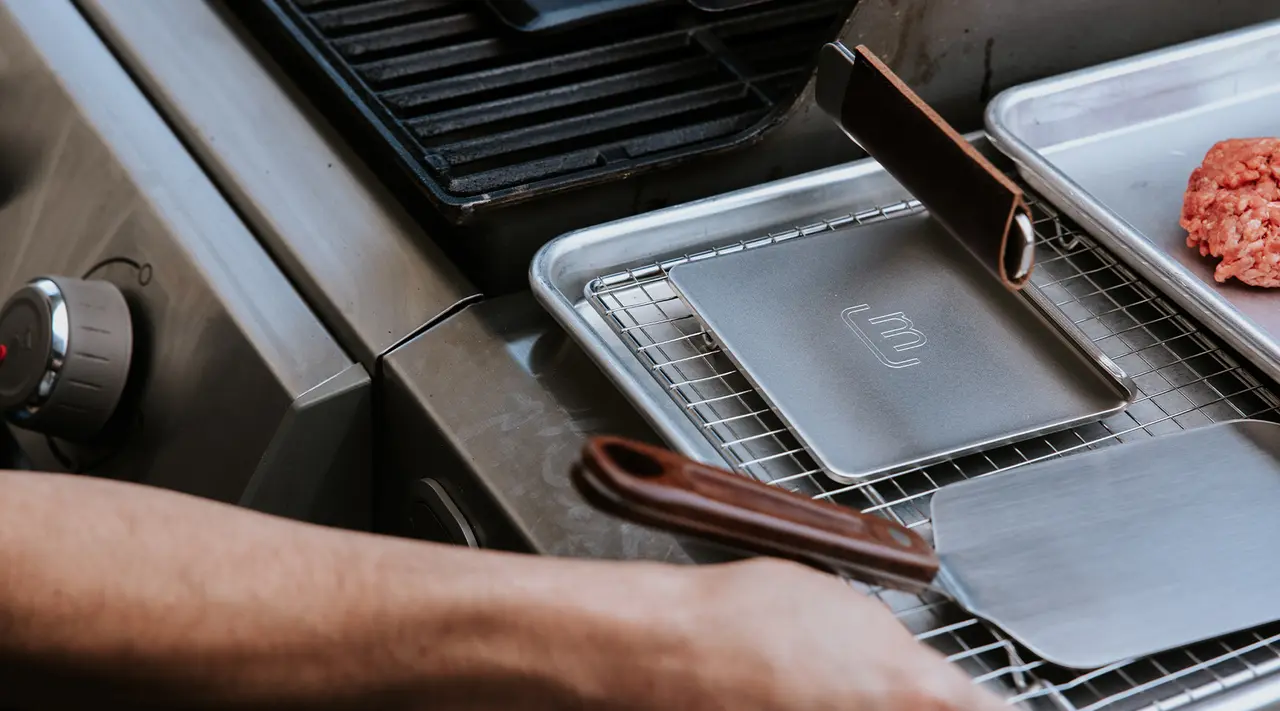
Every barbecue enthusiast knows that a griddle is a versatile tool in the outdoor cooking world. However, with all its benefits come challenges, particularly in managing the grease that accumulates during cooking. Knowing how to handle grease with a griddle scraper is crucial to maintain the griddle's longevity and ensure the best cooking experience.
The griddle scraper is an essential tool that makes cleaning easier and more efficient. In the following sections, we will delve deeper into the significance of managing grease, tips, and tricks for using the griddle scraper, and best practices to keep your griddle in pristine condition.

The Importance of Managing Grease on Your Griddle
Grease buildup is a common problem when cooking on a griddle. Not only can it negatively affect the taste and quality of your food, but it can also pose safety risks. Excess grease can ignite and cause flare-ups, potentially leading to burns or property damage. Moreover, leaving grease unattended can lead to the development of rust and corrosion, shortening the lifespan of your griddle.
By effectively handling grease, you ensure a cleaner cooking surface, which translates to better-tasting meals. Additionally, maintaining your griddle properly can save you money in the long run by avoiding costly repairs or replacements. For more information on maintaining griddle tools, check out this article on cleaning griddle tools.
Choosing the Right Griddle Scraper
Selecting the right griddle scraper can make a significant difference in how well you manage grease. There are various types of scrapers available, each designed for specific tasks. Some are ideal for heavy-duty scraping, while others are perfect for delicate surfaces. It's essential to select a scraper that matches your griddle type and the kind of cooking you frequently do.
When choosing a scraper, consider the material. Stainless steel scrapers, for example, are durable and effective for heavy-duty cleaning. However, if your griddle has a non-stick surface, opt for a plastic or silicone scraper to avoid damaging the coating. More insights on the types of griddle accessories can be found here.
Step-by-Step Guide on Using a Griddle Scraper
Now that you understand the importance of managing grease and how to choose the right scraper, it's time to dive into the step-by-step process of using it effectively.
Step 1: Heat the Griddle
Before you start scraping, ensure the griddle is warm. Heat helps loosen the grease, making it easier to remove. However, be cautious not to overheat, as this can cause burns.
Step 2: Scrape the Grease
Hold the scraper at a slight angle and gently begin scraping the grease towards the drip tray. Use even, consistent pressure to avoid damaging the griddle surface. Regularly wipe the scraper to remove excess grease.
Step 3: Clean the Griddle
After removing the grease, clean the griddle with warm, soapy water and a soft sponge. This step ensures any remaining residue is removed. Rinse thoroughly and dry with a clean towel.
Step 4: Season the Griddle
Once clean, apply a thin layer of oil to the griddle surface. This step helps maintain the non-stick quality and prevents rust. For further details on griddle maintenance, refer to this guide.
Common Mistakes to Avoid
While using a griddle scraper seems straightforward, there are common mistakes that barbecue enthusiasts should avoid. One such mistake is using excessive force, which can scratch or damage the griddle surface. Additionally, neglecting to clean the scraper can lead to cross-contamination of flavors and bacteria.
Another pitfall is not maintaining the griddle regularly. Regular cleaning and seasoning can prevent grease buildup and prolong the life of your equipment. For more tips on griddle care, explore this resource.

FAQ Section
1. Why is it important to handle grease on a griddle?
Handling grease is crucial to prevent safety hazards, enhance food flavor, and prolong the griddle's lifespan.
2. How often should I clean my griddle?
For optimal performance, clean your griddle after each use. Regular maintenance prevents grease buildup and rust.
3. Can I use any scraper on my griddle?
No, it's essential to choose a scraper suitable for your griddle's material to avoid damage. Consider stainless steel for durability or plastic for non-stick surfaces.
This article contains affiliate links. We may earn a commission at no extra cost to you.



